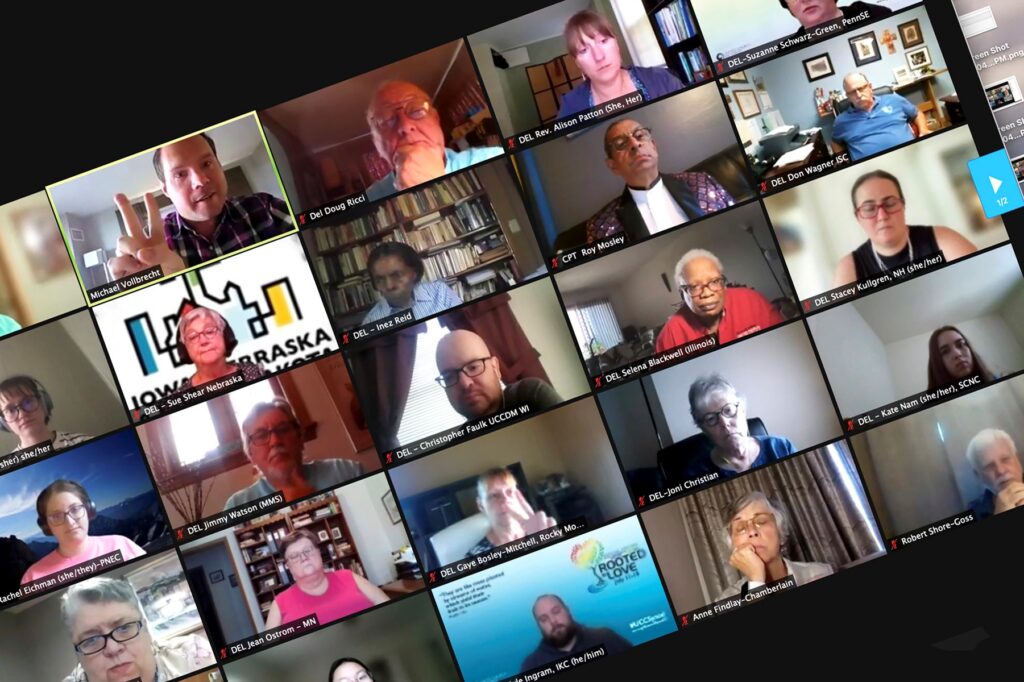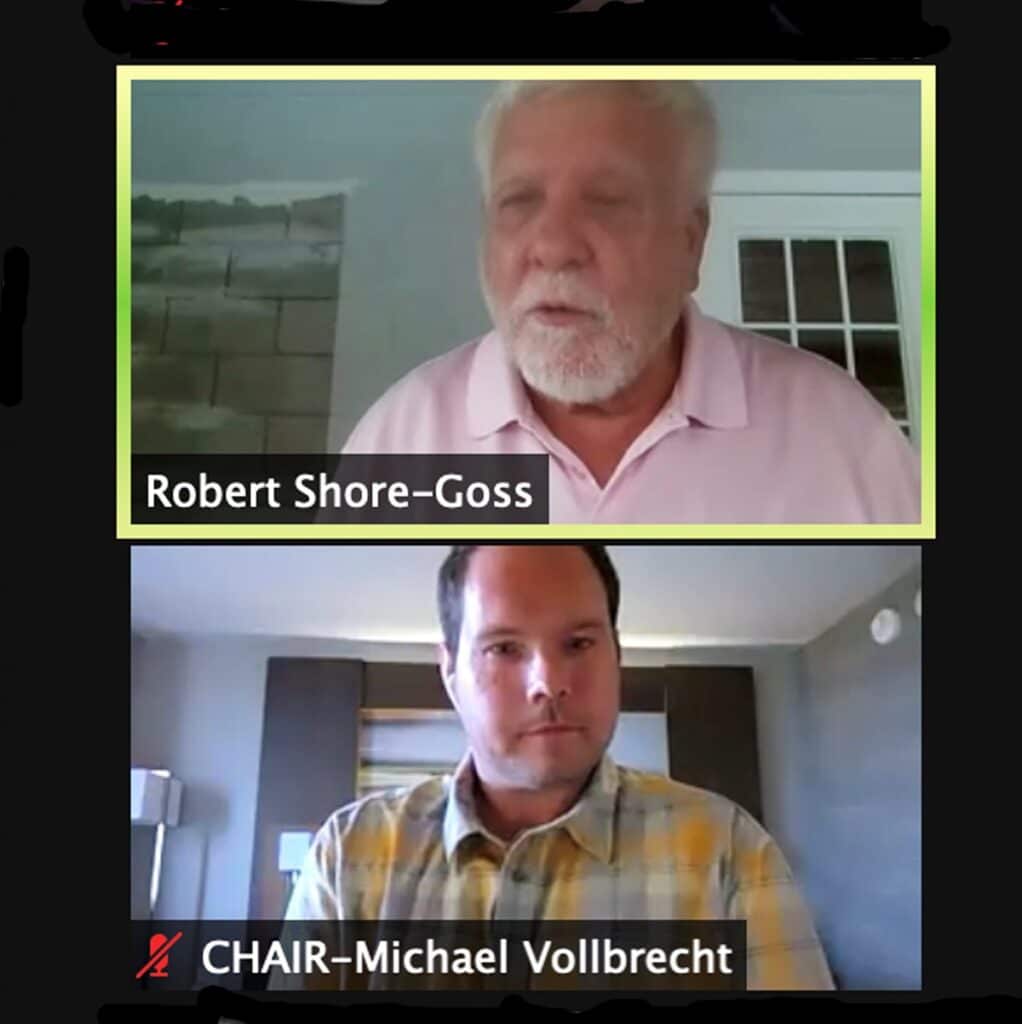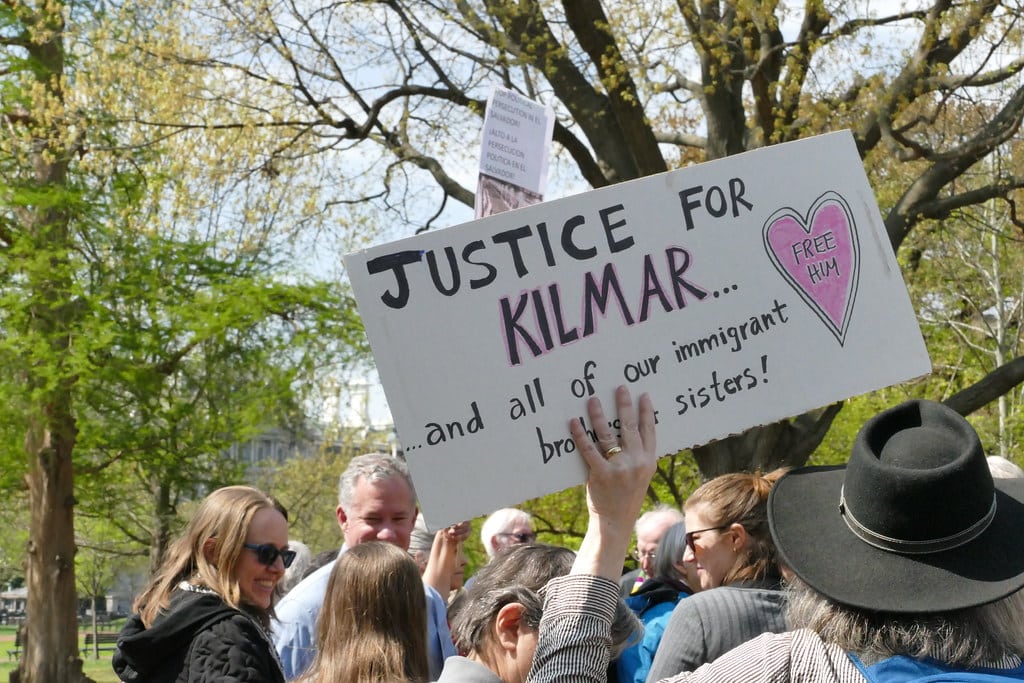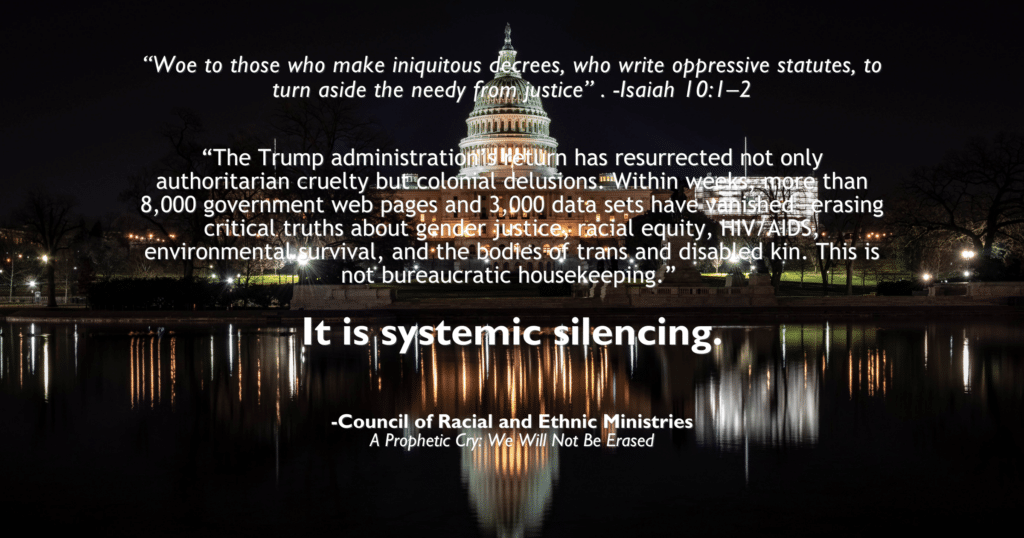Delegates agree it’s time to honor ‘rights of nature’
“Who will speak for the trees?” asked Dr. Seuss in his 1971 book, “The Lorax.”
“We will,” said the New Hampshire Conference, a regional body of the United Church of Christ. And now the UCC’s General Synod has spoken, too.
By a vote of 518-18, with one abstention, Synod delegates adopted “‘Who Will Speak for the Trees?’ A Resolution on the Rights of Nature.” The vote came July 18, during the final plenary session of the UCC’s biennial deliberative meeting.
Among many other things, the resolution supports “the ecological principle that the Rights of Nature supersedes harmful and destructive property rights.”
“The balanced cycles of the natural world,” it says, “must be protected as a common good for the present and future generations of human life and biokind.”
‘Urgency of this matter’
A committee of delegates spent parts of three Synod days discussing the originally submitted proposal, tightening its language and adding a reference to Earth’s oceans.

The amendments were meant “to mindfully strengthen the resolution” as it addresses “the urgency of this matter in our time,” said the Rev. Michael Vollbrecht, a pastor from the Kansas-Oklahoma Conference. He chaired the committee and presented the resolution in plenary.
“The resolution before you emphasizes the rights of nature and recognizes the roles of the United Church of Christ in its defense of humans and environmental rights,” he told the full gathering of delegates July 18. the resolution “calls on all settings of the church” to take an extensive list of actions. They range from liturgies and rituals, to local environmental organizing, to political advocacy.
Vollbrecht asked delegates themselves to act. “This resolution speaks to us to do more than just speak eloquently,” he said. “It invites us to act justly, with mercy and forgiveness to nature, which has long been abused and forsaken by human hands. … Who will speak for the trees? I hope the wider church will say, ‘we will do it.’”
Alison Buttrick Patton, a delegate from the Southern New England Conference who was on the committee, spoke about the ocean aspect.
“Many of you will be familiar with the idea of the Green New Deal,” she said, referring to proposed federal legislation endorsed by the 2019 General Synod. “We added language for a Blue New Deal to recognize the role of the oceans and waterways in sustaining us as a planet, and the need for any climate solution to center on the care on the oceans, waterways and creatures that live in the oceans.”
News reports confirm crisis
During the committee process, the Rev. Robert Shore-Goss, proponent for the resolution, described key moments in the “rights of Earth” movement. Among them:
- The first Earth Day was celebrated in 1970.
- That same year, U.S. President Richard Nixon created a council calling for environmental reform.
- Also, 50 years ago and more, writers signaled a paradigm shift: Legal scholar Christopher Stone wrote, “Do Trees Have Standing?” Supreme Court Justice William Douglas wrote a book in 1965, Wilderness Bill of Rights.
- In the 1980s, the priest Thomas Berry called for earth jurisprudence.
- More recently, Pope Francis said to the United Nations, “It must be stated that a true ‘right of the environment’ does exist.”

The urgency expressed in both the resolution and its process was reinforced by news of extreme heat in the Pacific Northwest, draught conditions in the West, and intensity of strength and numbers of hurricanes on the Gulf and Atlantic coasts. Shore-Goss named these patterns to the committee. Delegates, by their readiness to vote on this resolution, seemed to understand.
“I raise the question,” he said. “‘Who speaks for the trees?’ I’ve come to learn that trees know how to speak. Through fungi around their roots, they communicate with one another. They offer a model of care for the earth that we could imitate.”
A committee member asked Shore-Goss whether the writers of the resolution are proposing an end to economic ownership of land. Or is this a philosophy of posture in relation to the land?
His answer: ”Economics are addressed. This is not a legal document. This is a moral and religious document. The economy we are going through, the economy of fossil fuel, is an economy of death. Moving to renewable energy is an economy of life.”
C.L.”Curly” Stumb, editor of the UCC Southern Conference E-news, is a General Synod Newsroom volunteer.
Related News
UCC churches and faith communities join in protest of political prisoner
Members of Washington, D.C. area United Church of Christ congregations joined with other faith...
Read MoreMy Country ‘Tis of Thee
Lately, there has been much conversation about immigration policies in the United States. The...
Read More‘An exorcism attempt’: COREM statement calls out Trump administration’s harmful policies
The Council for Racial and Ethnic Ministries (COREM) released what they are calling “A...
Read More



